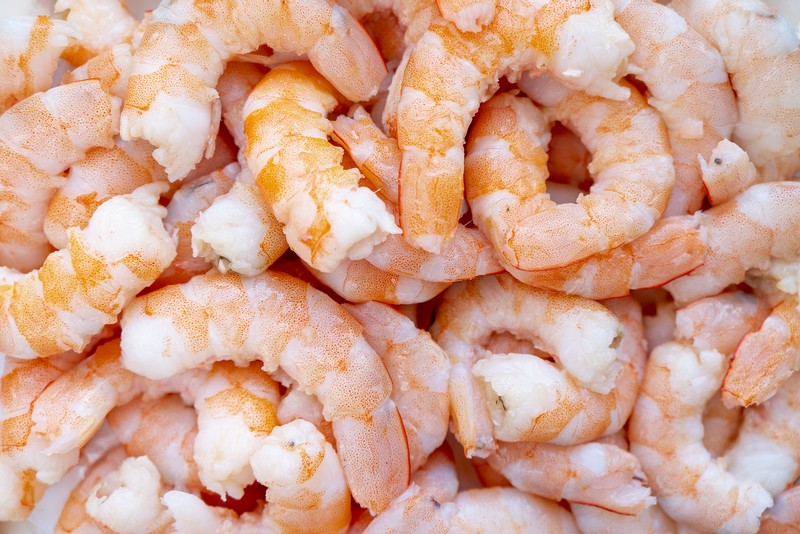Frozen Cooked Shrimp Sold at Costco at Risk for Salmonella
Frozen Cooked Shrimp Sold at Costco at Risk for Salmonella
A recall has been issued for frozen shrimp sold at major U.S. retailers that may have been contaminated with salmonella bacteria. Experts have warned consumers not to each any frozen cooked shrimp bought from Costco, BJ’s Wholesale Club, or Tops between February and mid-May this year. According to Consumer Affairs, the U.S. Food and Drug Administration (FDA) has said it found salmonella bacteria in tested shrimp produced by India-based Kader Exports.
Details of the Shrimp Recall
The company, which supplies shrimp to several brands and retailers, has recalled various package sizes. So far, no illnesses have been reported. The FDA said that cross-contamination was the likely reason salmonella was on the shrimp. Kader Exports says that the source of the contamination has been removed and that steps have been taken to prevent it in the future.
The recalled products include frozen, cooked, deveined shrimp sold under the brand names Aqua Star Reserve, Censea, Fresh Market, Kirkland Signature (Costco), Tops, Unistar, and Wellsley Farms (BJ’s Wholesale Club). The FDA is urging anyone who has these products in their freezer to discard them or return them to the store where they were purchased for a full refund. Experts with Consumer Affairs say freezing foods doesn’t always kill foodborne bacteria such as salmonella. While cooking it could kill the bacteria, it is not a good idea to take a chance with food that you know may be contaminated. When in doubt, it’s best to return it to the store or throw it out.
Claim for Compensation
Some of the common symptoms of salmonella infections include diarrhea, fever, and stomach cramps that typically begin about six hours to six days after infection and last four to seven days. However, some people may not develop symptoms for several weeks. The populations that are most at risk include those younger than 5, those older than 65, and individuals with weakened immune systems.
If you or a loved one has been sickened by contaminated food, it’s a good idea to save the purchase receipts for the products that you suspect caused your illness. If you still have some of the product remaining, isolate it so no one else in your household consumes it. Then, have it independently tested in a laboratory for the presence of pathogens.
If you are experiencing symptoms, make sure you get prompt medical attention, treatment, and care. Some strains of salmonella respond to antibiotics, but others don’t. Serious cases could result in hospitalizations. Affected victims may also be able to file a lawsuit against the manufacturer, retailer, and other parties in the distribution chain. Victims can seek compensation for damages such as medical expenses, lost income, hospitalization, pain and suffering, and emotional distress. An experienced food poisoning lawyer will be able to advise you regarding your legal rights and options.









